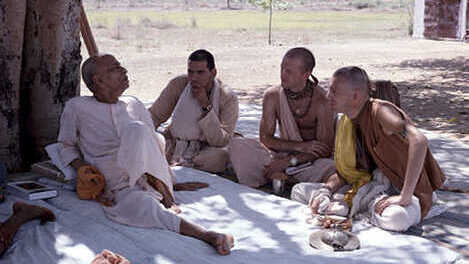“Sat” means satyam or truth.
“Sang” means association.
“Sat Sang” means associating with truthful person(s) and listening to their advice or teachings.
Who can be called truthful?
- One who always speaks the truth
- One who does not break vows
- One who does not make things up
- One who does not mislead anyone
- One who can prove his/her claims
- One who does not hide any information
- One who answers questions and not dismiss them
- One who sets good examples for others to follow
- One who follows the scriptural injunctions
- One who quotes from the scriptures to support their statements
- One who is obedient to the elders, parents, and husband (for wife)
- One who fulfills their prescribed duties
One should avoid the association of those who do not comply with the above. One should NEVER hear any religious teachings from those who do no comply with the above. Only do Sat Sang with those who behave well with everyone and are of good character. Thus those who are truthful, kind hearted, humble, grateful, have empathy, generous etc..
One moment of bad association can ruin your whole life.
“There is nothing more sinful than untruthfulness. Because of this, mother earth once said, ‘I can bear any heavy thing except a person who is a liar.’ ” (Shrimad-Bhagavatam 8.20.4)
“He who discards scriptural injunctions and acts according to his own whims attains neither perfection, nor happiness, nor the supreme destination.” (Lord Krishna, Bhagavad-Gita 16.23)
“Scriptural injunctions may not be very palatable; nonetheless, they are authoritative, and we have to preach the truth. We cannot play hide and seek with the problems of life. We must know our real position, and we must know what is religion and what is irreligion. Religion means action according to the orders of God, and irreligion means action that goes against the orders of God” (Swami Srila Prabhupada)
“The order of the spiritual master is the active principle in spiritual life. Anyone who disobeys the order of the spiritual master immediately becomes useless.” (cc adi 12.10)

